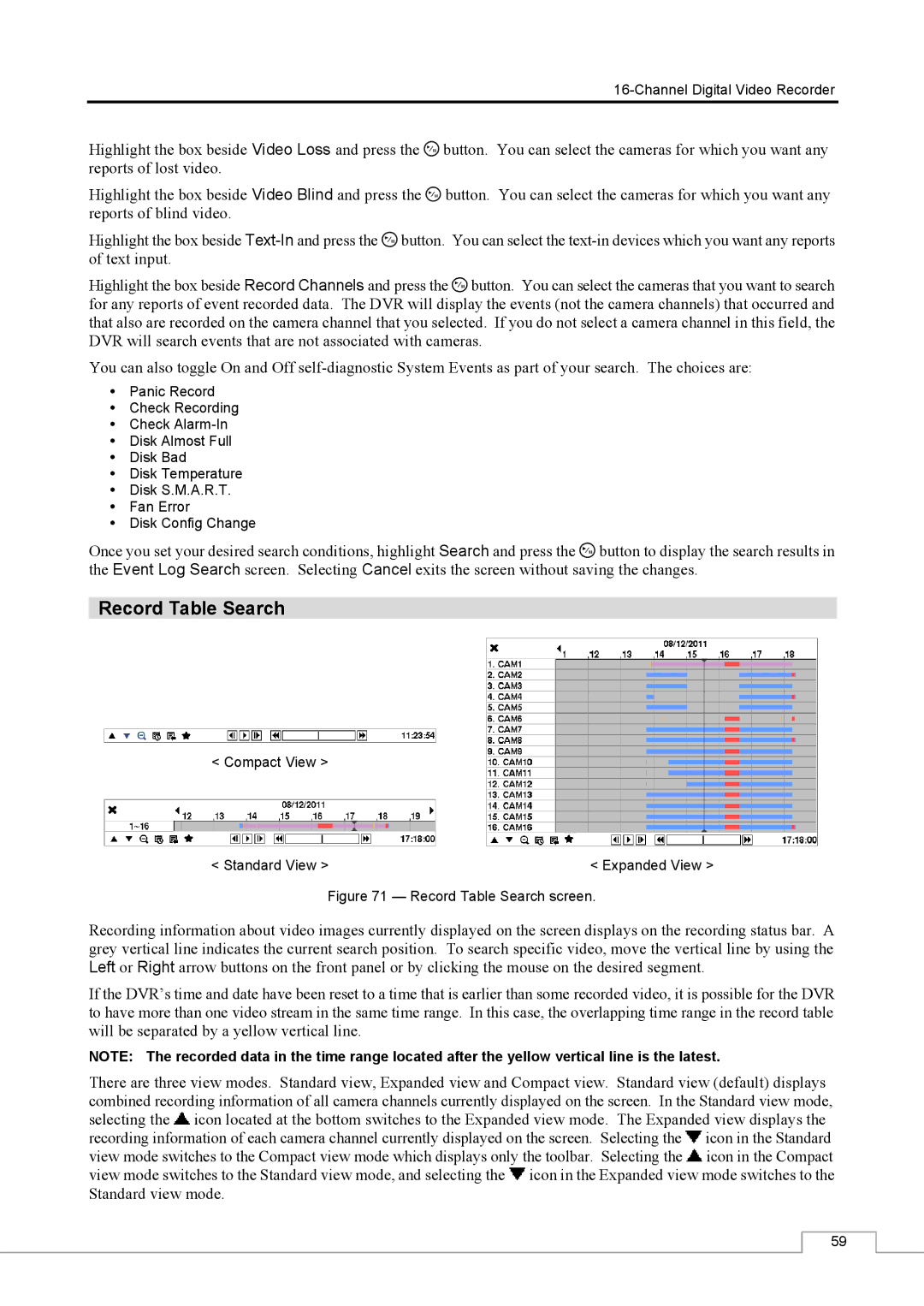
Highlight the box beside Video Loss and press the ![]() button. You can select the cameras for which you want any reports of lost video.
button. You can select the cameras for which you want any reports of lost video.
Highlight the box beside Video Blind and press the ![]() button. You can select the cameras for which you want any reports of blind video.
button. You can select the cameras for which you want any reports of blind video.
Highlight the box beside ![]() button. You can select the
button. You can select the
Highlight the box beside Record Channels and press the ![]() button. You can select the cameras that you want to search for any reports of event recorded data. The DVR will display the events (not the camera channels) that occurred and that also are recorded on the camera channel that you selected. If you do not select a camera channel in this field, the DVR will search events that are not associated with cameras.
button. You can select the cameras that you want to search for any reports of event recorded data. The DVR will display the events (not the camera channels) that occurred and that also are recorded on the camera channel that you selected. If you do not select a camera channel in this field, the DVR will search events that are not associated with cameras.
You can also toggle On and Off
Panic Record
Check Recording
Check
Disk Almost Full
Disk Bad
Disk Temperature
Disk S.M.A.R.T.
Fan Error
Disk Config Change
Once you set your desired search conditions, highlight Search and press the ![]() button to display the search results in the Event Log Search screen. Selecting Cancel exits the screen without saving the changes.
button to display the search results in the Event Log Search screen. Selecting Cancel exits the screen without saving the changes.
Record Table Search
< Compact View >
< Standard View >< Expanded View >
Figure 71 — Record Table Search screen.
Recording information about video images currently displayed on the screen displays on the recording status bar. A grey vertical line indicates the current search position. To search specific video, move the vertical line by using the Left or Right arrow buttons on the front panel or by clicking the mouse on the desired segment.
If the DVR’s time and date have been reset to a time that is earlier than some recorded video, it is possible for the DVR to have more than one video stream in the same time range. In this case, the overlapping time range in the record table will be separated by a yellow vertical line.
NOTE: The recorded data in the time range located after the yellow vertical line is the latest.
There are three view modes. Standard view, Expanded view and Compact view. Standard view (default) displays combined recording information of all camera channels currently displayed on the screen. In the Standard view mode, selecting the ![]() icon located at the bottom switches to the Expanded view mode. The Expanded view displays the recording information of each camera channel currently displayed on the screen. Selecting the
icon located at the bottom switches to the Expanded view mode. The Expanded view displays the recording information of each camera channel currently displayed on the screen. Selecting the ![]() icon in the Standard view mode switches to the Compact view mode which displays only the toolbar. Selecting the
icon in the Standard view mode switches to the Compact view mode which displays only the toolbar. Selecting the ![]() icon in the Compact view mode switches to the Standard view mode, and selecting the
icon in the Compact view mode switches to the Standard view mode, and selecting the ![]() icon in the Expanded view mode switches to the Standard view mode.
icon in the Expanded view mode switches to the Standard view mode.
59
